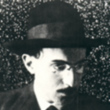Skylight
Description
A previously unpublished novel by a literary master, Skylight tells the intertwined stories of the residents of a faded apartment building in 1940s Lisbon. Silvestre and Mariana, a happily married elderly couple, take in a young nomad, Abel, and soon discover their many differences. Adriana loves Beethoven more than any man, but her budding sexuality brings new feelings to the surface. Carmen left Galicia to marry humble Emilio, but hates Lisbon and longs for her first love, Manolo. Lidia used to work the streets, but now she’s kept by Paulo, a wealthy man with a wandering eye.
These are just some of the characters in this early work, completed by Saramago in 1953 but never published until now. With his characteristic compassion, depth, and wit, Saramago shows us the quiet contentment of a happy family and the infectious poison of an unhappy one. We see his characters’ most intimate moments as well as the casual encounters particular to neighbors living in close proximity. Skylight is a portrait of ordinary people, painted by a master of the quotidian, a great observer of the immense beauty and profound hardships of the modern world.
More Details
Contributors
ISBN
9780544570375
9780544084988
9780544090026
9780544084988
9780544090026
Excerpt
Loading Excerpt...
Similar Titles From NoveList
NoveList provides detailed suggestions for titles you might like if you enjoyed this book. Suggestions are based on recommendations from librarians and other contributors.
These books have the appeal factors moving, reflective, and lyrical, and they have the genre "literary fiction"; the subject "interpersonal relations"; and characters that are "complex characters."
These books have the appeal factors haunting and lyrical, and they have the genres "literary fiction" and "translations -- portuguese to english"; the subject "city life"; and characters that are "complex characters" and "flawed characters."
These books have the appeal factors melancholy and lyrical, and they have the theme "coming of age"; the genre "literary fiction"; the subjects "interpersonal relations" and "loneliness"; and characters that are "complex characters" and "flawed characters."
In the microcosm of a single apartment building, these stylistically complex novels highlight diverse communities by revealing the lives of individuals. Life's freeze-frame, flashback-oriented narrative stands in sharp contrast to the more organic unfolding of Skylight's lyrical, multi-layered narrative. -- NoveList Contributor
Set in Lisbon in the 1940s (Skylight) and 1960s (Empty Wardrobes) both moving and lyrical translated novels star complex characters navigating a crossroads in their lives. -- Kaitlin Conner
These books have the appeal factors lyrical, stylistically complex, and spare, and they have the genres "literary fiction" and "translations -- portuguese to english"; the subjects "city life" and "interpersonal relations"; and characters that are "complex characters."
These books have the appeal factors lyrical, stylistically complex, and character-driven, and they have the genres "literary fiction" and "translations -- portuguese to english"; the subject "interpersonal relations"; and characters that are "complex characters."
These books have the appeal factors reflective, lyrical, and unconventional, and they have the genres "literary fiction" and "translations -- portuguese to english"; the subjects "apartment house life," "apartment dwellers," and "city life"; and characters that are "complex characters."
Momentary flashes of insight, joy, and beauty mix with life's bitter cruelties and searing losses in these stylistically complex novels focused on characters who seem tossed by unpredictable fate, but continue to struggle for meaning and love. -- Jen Baker
These moving, character-driven novels examine human relationships: Skylight introduces the residents of a multi-family housing complex in Lisbon, describing their interconnected lives. The Elegance of the Hedgehog infuses the unlikely bond between inhabitants of Parisian apartment complex with philosophical depth. -- NoveList Contributor
Although they reflect different cultures, both books illuminate the way in which one person's misery poisons those living nearby, and how happiness and love can counteract it. A lyrical style and lovingly developed characters infuse these moving literary novels. -- Jen Baker
Set in Lisbon, Portugal, during the 1940s, these lyrical, character-driven novels explore complex interpersonal relationships. The Two Hotel Francforts describe the extramarital affairs of two expatriate couples; Skylight examines the intersecting lives of six families inhabiting a single apartment building. -- NoveList Contributor
Similar Authors From NoveList
NoveList provides detailed suggestions for other authors you might want to read if you enjoyed this book. Suggestions are based on recommendations from librarians and other contributors.
José Saramago and Gabriel Garcia Marquez employ fantastical elements and unusual characters in stories with left-leaning politics, and both exert a graceful mastery over the language -- Saramago's much more experimental than that of Garcia Marquez, but both strongly appealing to readers of sophisticated literary fiction. -- Katherine Johnson
These authors write imaginative, lyrically written, and boldly experimental fiction that blends intimate human psychology, provocative political commentary, and elements of mysticism and magical realism. Their books are sometimes absurdly satirical and often challenging, employing unfamiliar narrative devices and using dense layers of symbolism and allegory. -- Derek Keyser
José Saramago and J. M. Coetzee write haunting, provocative novels that explore social and political issues with stylistically complex, often spare writing. Critically acclaimed novels like Saramago's Blindness and Coetzee's Waiting for the Barbarians are somber, allegorical tales. Elements of science fiction appear in Saramago's writing, while Coetzee's is more realistic. -- Alicia Cavitt
Steven Millhauser and José Saramago write fiction that ranges from the slightly surreal to the unabashedly mythical, and both are guaranteed to captivate readers who value literary style. Saramago's work has a stronger political element, while Millhauser treats a wider range of otherwise ordinary themes. -- Katherine Johnson
Roberto Bolaño and José Saramago write imaginative and challenging stories featuring dazzlingly inventive prose styles, artfully constructed and ambiguous narratives, and incisive political commentary. Through long, gracefully winding sentences, they craft grim depictions of human cruelty and poignant reflections on the human condition. -- Derek Keyser
Both Ben Okri and Jose Saramago write spare and leisurely paced literary fiction that focuses on human suffering, class conflicts, and social psychological involving hysteria or epidemics. Their disturbing and stylistically complex stories may contain speculative elements that challenge readers to interpret the meaning. -- Alicia Cavitt
China Miéville and José Saramago both insert fantastic elements into settings that more or less resemble real life, allowing their leftist politics to appear in plain view. Mieville uses a complex writing style, while Saramago's is apparently simple but actually quite experimental. Both will satisfy the most discerning literary readers. -- Katherine Johnson
Franz Kafka and José Saramago write with a sense of elegance and power, choosing words with precision. Both address politics head-on in their fiction while creating characters and situations of universal quality. And both use surreal situations and context to emphasize the helplessness of people caught up in incomprehensible events. -- Katherine Johnson
José Saramago and Mario Vargas Llosa imbue their literary fiction with political meaning, writing from the left end of the political spectrum. They also write with an experimental, sophisticated style and employ a deft approach to satire; the situations in which their characters find themselves are often darkly absurd. -- Katherine Johnson
Japanese author Haruki Murakami and Portuguese author Jose Saramagoare are both known for allegorical stories that comment upon the human condition and society and the use of broad metaphors that appeal to an international audience. Both experiment with style and plot structure, though in different ways, with Saramago's novels having a darker overall tone. -- Katherine Johnson
These authors' works are bleak, stylistically complex, and unconventional, and they have the genres "classics" and "psychological fiction"; and have characters that are introspective.
Reviews from GoodReads
Loading GoodReads Reviews.
Staff View
Loading Staff View.


































